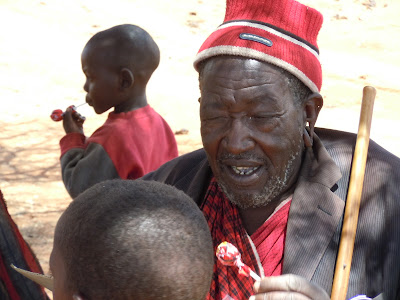 |
| 14 year old, Malala of Pakistan is a courageous young girl. |
It's astounding, really, that just as the UN declares October 11 as the first ever Day of the Girl Child, a 14 year old girl in Pakistan is singled out by the Taliban on a school bus and shot in the face. Her name is Malala Yousafzai and her crime was wanting to go to school so she could realize her dream of becoming a doctor.
From the brave
diary of a seventh grade school girl in Pakistan my thoughts turn to so many young girls I know in northern Tanzania who are choosing education to change their lives. Who knew going to school could be so life threatening? Malala, our thoughts are with you.
 |
| Secondary School Girls in Tanzania. |
T is one of the girls living in Longido who also values education. She came to the TEMBO Guesthouse to see me last week, telling me she has been working so hard to prepare for an interview that would determine whether or not she would get a second chance at secondary school education. Why should T get a second chance, you might wonder. What did she do with her first chance?
It's not what T did; it's what was done to her but a man of an unknown age. T, who is still a child barely the same age as Malala, was forced to have sex and, as a result, became pregnant. In the public school system in Tanzania this is not just a game changer. It's a game ender. Pregnant girls, or girls who have had a baby, are not permitted back into the government school system. Ever. There is only one very expensive option that very few girls like T will ever be able to access: private school. Fortunately, T was sponsored at a government school by TEMBO first time around and she will be the second time around, too, at a private school that understands only too well the situation she is in.
 |
Young girls see a very different world for themselves,
one where girls have a voice and can make choices. |
"I have been working so hard," T tells me with a wide smile and big bright eyes. Her English is unusually good for a girl her age. She listens carefully and actually understands the meaning beyond the words. That's why T is a good bet for future success. We're sitting with two young women from The Netherlands having a cold drink as the sun is setting. The young women have been in Longido for 3 months working with young child mothers like T.
The challenge girls face in Africa and the East is daunting. It is going to take people all over the world working together to make progress in reversing this horrible situation that robs girls of their right to be children and forces them to be child mothers. That is exactly where T was headed. And like Malala, T only wants to go to school.
Maasai leaders in Longido are taking a huge step outside of their cultural traditions in allowing their daughters and granddaughters to go to school. I urge them to take another giant step outside of their cultural norms - one that will no longer condone the actions of men wanting to engage in sexual activity with young girls like T.
Thanks to the UN for drawing our attention to the plight of millions of young girls. And thanks to courageous girls like Malala and T for risking so much to show many others the way.










